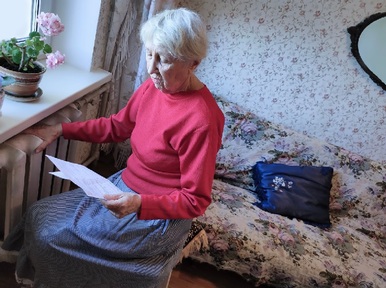Energy price hike will see 'worsening fuel poverty,' warn charities
Age UK and Revitalise have expressed “bitter disappointment” and “dismay” with the announcement that millions of households will have to pay an extra £693 a year on their energy bills, from next April.

The announcement from Ofgem earlier today means the price limit of households in England, Wales and Scotland will typically pay £1,971 a year for gas and electricity and with another four and a half million people on prepayment meters, they will see an increase of £708 a year.
Chancellor Rishi Sunak today announced to the House of Commons plans to help take the “sting" out of the significant price increase.
Mr Sunak said: “We will spread the worst of the extra costs of this years energy price shock over time. This year, all domestic electricity customers will receive an extra upfront discount on their bill worth £200. Energy suppliers will apply the discount from October with the government meeting the cost in full.”
However, the £200 will have to be paid back over the next five years at £40 per year starting in April 2023 and analysts are warning bills could rise again that month.
The Chancellor also included a £150 council tax discount for households but only those within bands A to D.
’Many older people will be badly shaken by the news they are hearing today’
Age UK and Revitalise argue the support the Chancellor has announced “simply does not go far enough” and urge the government to “urgently think again” and do more to help them.
Caroline Abrahams, director at Age UK, said: "On behalf of older people on low and modest incomes we are bitterly disappointed by what we have heard today. With average energy bills now set to rise by a whopping £693 per year - and almost certain to increase further in a few months' time - the support the Chancellor has announced simply does not go far enough.
“It will still leave many of these pensioners facing energy costs surging by an extra several hundred pounds that they cannot afford to pay. What does the Government expect them to do? Forgo their heating, ration their food or go into debt? These are the only choices that millions of the less fortunate will face, if they have no savings to draw on or family to help them out.
"Tough and stoical though they typically are, many older people will be badly shaken by the news they are hearing today. There's no doubt it will lead to many more turning their heating down or off altogether, because they will know these price surges and the Chancellor's inadequate response signals a crisis in their personal finances, with no end apparently in sight. The government must urgently think again and do more to help them."
’This is yet another devastating blow for disabled people and their families’
The disabled charity Revitalise called the rising energy costs and interest rates “Black Thursday” saying this will “hit disabled people and carers the hardest.”
Rebecca Young, head of external affairs at Revitalise said: “Urgent intervention is needed to save disabled people from being the victims of worsening fuel poverty.
“Disabled people already pay an extra £583 per month on average for additional living costs like heating, insurance and equipment. This further interest rate rise and energy bill hike will dramatically reduce what little they have left at the end of every month, putting them at greater risk of hardship.
"And for cash-strapped local authorities, some of whom are already on the verge of bankruptcy, the inevitable result will be a reduction in their ability to meet their statutory obligations to disabled people."
Study shows fuel poverty has ‘detrimental implications for health’
Researchers from the University of East Anglia investigated how fuel poverty impacts the health and wellbeing of people.
The research team studied data from a nationally representative sample of 6,854 participants involved in Understanding Society, the UK Household Longitudinal Study.
They explored the links between fuel poverty and wellbeing outcomes, such as life satisfaction and self-reported health measures and carefully adjusted other factors that could be affecting people’s health such as smoking, eating their five a day, or getting enough exercise.
Their results found a causal link between fuel poverty and poorer wellbeing as well as an increased inflammatory biomarker called fibrinogen which helps the body to stop bleeding by promoting blood clotting.
The researchers found that people with elevated fibrinogen levels are strongly linked to a higher risk of coronary heart disease, heart attacks, stroke and an increased risk of death.
Dr Andrew Burlinson from UEA’s Norwich Business School and the Centre for Competition Policy said: "Fuel poverty is widely acknowledged as a distinct form of income poverty and this study shows that it has far-reaching and detrimental implications for health, particularly cardiovascular disease, inflammation and lower wellbeing levels."
Latest News
 29-Jul-24
Dementia Bus gives carehome.co.uk staff insight into life with dementia
29-Jul-24
Dementia Bus gives carehome.co.uk staff insight into life with dementia
 27-Jul-23
UK's top home care agencies in 2023 revealed
27-Jul-23
UK's top home care agencies in 2023 revealed
 30-Nov-22
A quarter of older people keep their falls secret from family
30-Nov-22
A quarter of older people keep their falls secret from family
 29-Nov-22
'Covid-19 has not gone away' say terminally ill
29-Nov-22
'Covid-19 has not gone away' say terminally ill
 28-Nov-22
IT consultant who received poor care opens 'compassionate' home care business
28-Nov-22
IT consultant who received poor care opens 'compassionate' home care business